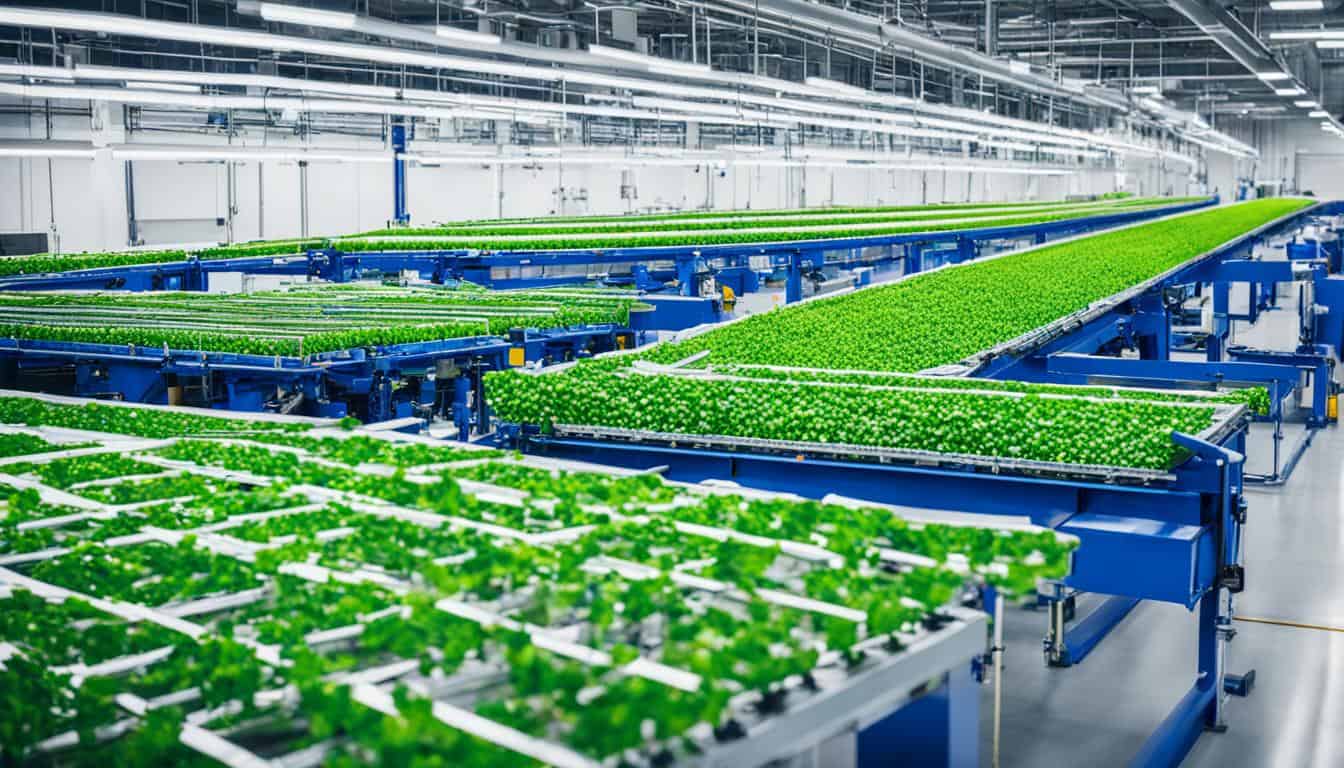From humble beginnings to a bustling global industry, the automotive sector has come a long way. However, with progress comes a necessary reckoning: the environmental impact of traditional practices can no longer be ignored. As the industry faces increasing pressure to evolve, leaders are rethinking operations from design to disposal, driven by a vision of sustainability. By embracing advanced technology and eco-forward automotive innovations, companies can make profound strides in reducing their carbon footprint and shape a more sustainable automotive future.
Key Takeaways
- Greater emphasis on automotive industry sustainability is needed for a greener future.
- Traditional practices are giving way to more sustainable automotive manufacturing methods.
- Reducing the automotive carbon footprint begins with eco-forward innovations and advanced technology.
- A shift to green practices and materials is necessary for the long-term, eco-friendly success of the automotive sector.
- Industry-wide collaboration, government regulations, and consumer demand are essential factors in driving change.
Transitioning the Automotive Sector to Sustainable Practices
Advanced technologies are revolutionizing the automotive industry’s approach to sustainability. As companies face supply chain disruptions and part shortages, there is a growing shift toward sustainable practices. Technology unlocks new pathways for redesigning manufacturing processes, facilitating electric vehicle (EV) production, and supporting green practices that extend from vehicle operation to end-of-life management.
Stratasys: Additive manufacturing allows automotive manufacturers to use only the necessary materials for producing a part, leading to reduced waste, energy consumption, and machine emissions during production.
The Role of Advanced Technology in Sustainable Manufacturing
Automotive sector innovation plays a significant role in the industry’s transition to sustainable practices. Advanced technology in sustainable manufacturing, such as green technology automotive, promotes energy efficiency and reduces the overall carbon footprint of automobiles. Some examples of these technologies include robotic assembly, additive manufacturing, and renewable energy sources like solar and wind power. These innovations aid in eco-friendly practices in automotive production, material sourcing, and logistics.
Combating Supply Chain Disruptions with Eco-Practices
To handle persistent supply chain challenges, automotive businesses are leveraging cross-industry collaboration, technology for increased visibility, and a focus on sustainable operations. A sustainable supply chain offers a competitive edge by reducing emissions and optimizing efficiency through better logistics and ethical material sourcing. By implementing sustainable automotive logistics and eco-practices, automotive businesses can achieve a green automotive supply chain that is resilient and adaptable to change.
“A sustainable supply chain offers a competitive edge by reducing emissions and optimizing efficiency through better logistics and ethical material sourcing.”
Environmental Benefits of Shifting Toward Green Methods
Adopting sustainable practices within the automotive industry promises significant environmental benefits. Transitioning to green manufacturing techniques, such as utilizing electric vehicles and emphasizing material efficiency, aims to lower greenhouse gas emissions, conserve resources, and reduce fuel reliance. Some of the environmental benefits of green manufacturing include:
- Reducing emissions automotive industry-wide
- Improving resource management and waste reduction
- Connecting sustainability with customer satisfaction
- Enhancing the industry’s image as eco-aware and responsible
By making a concerted effort to shift to sustainable automotive practices and prioritize eco-practices in design, production, and disposal, the industry can lead the way toward a more responsible environmental footprint.
The Evolutionary Path: From Traditional to Sustainable Manufacturing
Historically, the automotive sector has been characterized by labor-intensive methods that produce considerable emissions. Transforming these traditional assembly lines to sustainable manufacturing requires a dramatic shift in energy use, material choice, and overall design philosophy. The transition is bolstered by a collective effort to reduce waste and energy expenditure while optimizing manufacturing for environmental stewardship.
Traditional automotive manufacturing methods are resource-intensive, often relying on fossil fuels and non-renewable materials, resulting in significant environmental impacts. On the other hand, sustainable automotive practices emphasize the importance of minimizing the sector’s ecological footprint through a variety of measures, including renewable energy sources, recycled and eco-friendly materials, waste reduction, and energy-efficient processes.
“The automotive sustainable transformation is a radical departure from conventional manufacturing, calling for substantial investments in research, development, and retraining to ensure a smooth transition to greener practices.”
- Adoption of renewable energy sources – Reducing reliance on fossil fuels through solar, wind, and hydropower, minimizing greenhouse gas emissions generated during production.
- Usage of eco-friendly materials – Incorporating sustainable materials, such as recycled aluminum and bio-based plastics, into vehicle production lowers the environmental impacts associated with extraction and production of conventional materials.
- Energy-efficient production techniques – Lean manufacturing processes minimize waste and resource consumption, leading to a smaller carbon footprint and overall environmental impact.
- Design for end-of-life management – Designing vehicles with recycling and upcycling in mind, ensuring components can be reclaimed and reused at the end of their usable life, reducing environmental burden.
As the automotive industry navigates its evolutionary path, a commitment to sustainable automotive practices will only grow in significance, both environmentally and economically. The incorporation of advanced technologies, innovative materials, and a focus on eco-friendly design principles is essential for a successful and lasting transformation.
| Traditional Manufacturing | Sustainable Manufacturing |
|---|---|
| Reliance on fossil fuels for energy | Use of renewable energy sources |
| High energy and resource consumption | Efficient processes and reduced waste |
| Non-renewable materials | Eco-friendly and recycled materials |
| Minimal consideration for end-of-life management | Design with recycling/upcycling in mind |
As the automotive sector continues on its evolutionary path towards sustainable manufacturing, transitioning from traditional to eco-friendly practices is critical. Companies that embrace these changes will not only contribute to a healthier planet, but also position themselves as leaders in shaping the future of the automotive industry and securing long-term economic success.
Governmental Push and Regulations Encouraging Sustainability

Over the past years, governments worldwide have been exerting influential pressure on the automotive sector through initiatives like The European Green Deal and The Paris Agreement. By enacting regulations that mandate significant cuts in CO2 emissions, offering incentives for electric vehicles, and establishing carbon taxes, public agencies are fast-tracking the industry’s shift toward sustainable solutions and carbon neutrality.
There are different approaches governments have taken to stimulate and enforce change in the automotive industry. Some of the most impactful measures and incentives include:
- Stricter fuel economy and emission standards.
- Targeting carbon-neutral automotive targets by specific dates.
- Financial incentives for electric vehicle (EV) buyers and manufacturers.
- Investment in charging infrastructure and EV technology development.
- Collaborative international agreements, committing to shared goals and standards.
“Setting stringent targets, developing policies, and implementing regulatory measures not only benefits the environment but also drives automotive innovation towards green solutions.”
Table: Key Policies and Initiatives Encouraging Sustainability in the Automotive Industry
| Policy / Initiative | Description | Impact on the Automotive Sector |
|---|---|---|
| European Green Deal | A landmark initiative by the European Union which sets ambitious carbon reduction goals, aiming for climate neutrality by 2050. | Accelerates the push towards zero-emission vehicles within the EU and encourages increased EV adoption rate. |
| U.S. CAFE Standards | Corporate Average Fuel Economy (CAFE) standards regulate fuel efficiency for new vehicles, prompting automakers to improve overall fleet efficiency. | Encourages research and development in fuel-efficient and low-emission technologies, ultimately leading to greener vehicle production. |
| The Paris Agreement | A global initiative adopted by 196 countries to combat climate change, aiming to limit global warming to well below 2°C. | Pushes adoption of sustainable technologies and practices in automotive manufacturing and vehicle emissions reduction. |
| China’s NEV Subsidies | China offers significant financial subsidies to promote the steady growth of their New Energy Vehicle (NEV) market. | Attracts global automakers to invest in the Chinese market, resulting in increased production and sales of EVs in the region. |
Governmental incentives and regulations have played a crucial role in shaping the future of the automotive industry, driving advancements in sustainable technologies, and promoting responsible environmental practices. As the increasing global awareness regarding climate change becomes more prominent, these measures will continue to be of great significance in accelerating the transition towards a carbon-neutral automotive future.
Meeting New Consumer Demands with Eco-Conscious Vehicles

As people worldwide become increasingly aware of the environmental impact of their everyday actions, the demand for eco-conscious vehicles rises. Consumers now look for cars that incorporate sustainable practices and advanced technology to meet their modern needs. Automotive industry leaders must adapt to these new consumer demands by creating vehicles with environmentally friendly features and designs.
Integrating Customer Preferences into Car Design
Today’s customers actively seek eco-conscious transport solutions, with electric vehicle adoption rapidly increasing. To keep up with these trends and cater to the evolving preferences of consumers, car manufacturers now emphasize eco-friendly designs and materials in their latest models. Some of these sustainable features include:
- Lightweight, recycled materials reducing the overall weight and improving fuel efficiency
- Aerodynamic designs that minimize air resistance and energy consumption
- Energy-efficient infotainment systems, smart connectivity, and advanced driver-assistance technologies
- Modular platforms allowing for easy integration of new green tech solutions, electric motors, and battery systems
The integration of customer preferences into car designs is transforming the automotive industry, resulting in the creation of cutting-edge, customer-driven sustainable automotive vehicles.
The Impact of Electric Vehicles on Environmental Goals
Electric vehicles (EVs) are revolutionizing the global automotive market and significantly contribute to achieving environmental goals. With numerous benefits, both ecological and economical, EVs are becoming an integral part of the modern automotive landscape. They offer:
- Considerably lower greenhouse gas emissions, as they produce zero tailpipe emissions and rely on cleaner electricity sources
- Reduced dependence on fossil fuels, leading to a decrease in air pollution and carbon footprint
- Lower operating and maintenance costs, providing long-term savings for consumers
- Opportunities to integrate renewable energy sources, like solar and wind power, for charging infrastructure
EVs have a significant impact on an ever-changing automotive industry, and their increasing market share reflects the continued growth of consumer demand for eco-conscious transport solutions.
| Environmental Goal | Traditional Vehicles | Electric Vehicles |
|---|---|---|
| Greenhouse Gas Emissions | High | Low |
| Fossil Fuel Dependency | High | Low |
| Operating and Maintenance Costs | Higher | Lower |
| Integration of Renewable Energy | Limited | High potential |
As electric vehicles continue to gain traction in the market, their impact on the environment will become more significant. Shifting the automotive world toward electric vehicles ensures customer satisfaction while addressing crucial sustainability goals.
Collaborative Efforts in the Auto Industry for a Greener Tomorrow
The automotive industry recognizes the importance of collaborative efforts in establishing sustainable practices. Original Equipment Manufacturers (OEMs) and technology firms are forming alliances to overcome challenges like electrification, battery lifecycle management, and carbon footprint reduction. Joint efforts are essential to achieve long-term sustainable outcomes across the value chain. This greener tomorrow automotive vision drives cross-industry collaboration, ultimately promoting sustainability-oriented advancements.
Mayco International: Plastic parts, on average, weigh 50% less than their metal counterparts and can offer equal strength and greater resistance to damage, corrosion, and wear and tear, contributing to vehicle lightweighting and energy efficiency.
Several notable sustainable automotive alliances have emerged, showcasing the power of collaboration in pursuing eco-friendly initiatives. By partnering with technology firms, OEMs can benefit from external expertise and resources to drive innovations like electric vehicles and green manufacturing processes.
Working together is crucial for successful transitions in the automotive industry, particularly towards realizing long-term sustainability goals.
Some key areas where collaborations foster eco-friendly advancements are:
- Electric vehicle development and innovation
- Battery technology and lifecycle management
- Carbon capture and recycling initiatives
- Research and development of alternative materials
Seizing the opportunities in cross-industry collaboration to create more sustainable supply chains and manufacturing processes helps OEMs and suppliers collectively drive the automotive sector towards a cleaner, greener future.
Envisioning Sustainable Automotive Manufacturing Processes

As the automotive industry pivots toward sustainability, envisioning new and innovative manufacturing processes is crucial. Green technology automotive advancements and alternative fuels have the potential to revolutionize this sector, facilitating the design and production of eco-friendly vehicles with lower emissions.
Incorporating Green Technology and Alternative Fuels
Various technologies are being integrated into the automotive industry to design environmentally sustainable production processes. Some examples include:
- Renewable Energy Sources: Solar power and wind energy contribute to reducing greenhouse gas emissions by replacing traditional fossil fuels in the manufacturing process.
- Advanced Industry Tech: Innovative technologies, such as hydrogen fuel cells and electric vehicle battery management systems, play a significant role in enabling the eco-friendly production of automotive components.
- Non-Conventional Materials: Environmentally conscious materials aid in developing lighter, cleaner vehicles that conserve valuable resources and lessen pollution in the atmosphere.
In addition to green technology implementation, alternative fuels such as electric, biofuel, and hydrogen power are crucial for lowering CO2 emissions generated from traditional internal combustion engines. Combining these fuels with the latest industry advances enables enhanced sustainability within the automotive sector.
The Criticality of Upcycling and Use of Recycled Materials
Upcycling and the utilization of recycled materials are paramount in the transition to sustainable manufacturing. By implementing resourceful strategies at every stage of production, the automotive industry can significantly reduce its environmental impact:
- Reusing Metals and Plastics: Repurposing metals and plastics from discarded vehicles to create new components helps preserve resources and minimize waste.
- Developing Biodegradable and Bio-Based Polymers: These innovative materials lessen dependency on finite resources while enabling the development of sustainable components, therefore reducing the environmental impact associated with material extraction and production.
“Upcycling and the use of recycled materials in automotive manufacturing minimize waste and slash the environmental impact associated with material extraction and production.”
Embracing sustainable material sourcing and automotive eco-materials innovation will significantly benefit the future of automotive manufacturing. Green technology and alternative fuels, along with upcycling and recycled materials, will play essential roles in shaping an eco-efficient automotive sector that benefits the environment.
Creating a Competitive Edge with Sustainable Supply Chains
An environmentally conscious supply chain offers a significant competitive advantage, with transparency playing a key role. By clearly conveying the sustainable origins of automotive parts and providing insight into the production lifecycle, companies are setting themselves apart and appealing to stakeholders invested in ethical and sustainable practices.
Supply Chain Transparency as a Competitive Differentiator
As consumers increasingly prioritize ethical sourcing automotive components, supply chain transparency becomes essential. Showcasing a company’s commitment to sustainable procurement and production processes demonstrates its dedication to addressing broader sustainability challenges.
According to a study by the Journal of Business Ethics, transparent supply chains can positively affect a company’s brand perception, impacting consumer purchasing decisions.
Thus, supply chain transparency not only offers a competitive edge in sustainability but also strengthens brand reputation and appeal to a green-focused market.
Overcoming Challenges in the Transition to Sustainable Operations
Navigating the transition to sustainable operations comes with a range of automotive industry hurdles. Some key challenges include:
- Compliance with evolving regulations and standards
- Adapting to new consumer demands for eco-conscious vehicles
- Minimizing operational costs and maintaining profitability
- Fostering collaboration and innovation across the industry
Despite these challenges, long-term success hinges on a company’s resilience and commitment to overcoming sustainability challenges. Undertaking a phased approach to sustainable implementation strategies allows companies to better adapt their processes and cultivate a reputation for environmental stewardship.
One such strategy is the integration of sustainable supply chains throughout an organization. By focusing on resource optimization, ethical sourcing, and responsible end-of-life management, companies can forge a competitive edge while reducing their environmental impact. For example, incorporating recycled materials in manufacturing processes can minimize waste and reduce the need for resource extraction, while ethically sourced components can reduce a vehicle’s carbon footprint.
Ultimately, the transition to sustainable operations in the automotive industry is both a strategic investment and a forward-thinking approach to global sustainability. By addressing key obstacles and adopting innovative solutions, companies can position themselves at the forefront of environmental responsibility.
Innovative Materials: Pathway to Reducing Carbon Footprint

The automotive industry is undergoing significant change as it strives to create more sustainable vehicles. This entails adopting innovative sustainable materials that play a crucial role in reducing the carbon footprint of vehicles, while also enhancing performance and aesthetics. By incorporating eco-friendly materials throughout the entire manufacturing process, the automotive sector is taking bold steps toward a cleaner, more efficient future.
One of the first steps in this journey is the use of bioplastics and biocomposites, which can be produced from renewable resources and help reduce dependency on fossil fuels. These materials are not only lightweight but also boast impressive strength, making them suitable for a variety of automotive applications. From interior components to under-the-hood parts, bioplastics and biocomposites hold great potential for creating vehicles with a considerably smaller environmental impact.
Metal components also contribute to a vehicle’s overall weight, which in turn impacts fuel efficiency and emissions. To this end, the automotive industry has turned to recycled aluminum as a solution. By using recycled aluminum, the production process consumes significantly less energy and reduces greenhouse gas emissions compared to the extraction and refinement of raw materials. With the added benefit of being lightweight and durable, recycled aluminum is increasingly becoming a preferred material for vehicle bodies and components.
Natural fiber reinforcements also play an integral part in automotive material innovation. Manufactured from renewable sources like flax, hemp, and jute, these fibers can be used to create strong and lightweight sustainable automotive components. As a result, natural fiber-reinforced parts minimize vehicle weight and contribute to fuel efficiency improvements while also boasting outstanding mechanical properties.
The adoption of innovative sustainable materials in the automotive industry is a crucial step toward reducing carbon footprint and creating more environmentally friendly transportation solutions for future generations.
Overall, the continuous exploration and application of sustainable materials in vehicle design and manufacturing is forging a cleaner automotive future. While challenges remain in scaling production and achieving widespread adoption, these innovative materials provide the pathway for the automotive sector to take responsibility for its environmental impact, ultimately leading to a greener and more sustainable tomorrow.
Conclusion on The Automotive Industry
As we look toward a sustainable automotive future, it’s evident that green automotive advancements are central to driving change within the industry. From embracing state-of-the-art technologies to adopting eco-conscious materials and practices, the automotive sector has made significant strides. These sustainability achievements not only demonstrate automotive businesses’ commitment to preserving our planet but also showcase the pivotal role the industry plays in shaping a greener tomorrow.
Challenges faced in transitioning to sustainable auto manufacturing have been met with ingenuity, fostering a new era of collaboration and innovation. Companies are adapting to both customer expectations and regulatory pressures, balancing profitability with environmentally responsible practices. This shift not only speaks to the industry’s resilience but also reflects its dedication to meeting the evolving needs of society and our planet.
In conclusion, continued investment in advanced technologies, materials, and collaborative efforts will be crucial for solidifying the success of this eco-forward transformation. As we support and witness the ongoing progress, we can feel optimistic about the sustainable future that lies ahead for the automotive industry—benefiting both businesses and the environment.
FAQ on Sustainable Automotive Manufacturing Methods
Q: What is the role of sustainable manufacturing in the automotive industry today?
A: Sustainable manufacturing plays a crucial role in reducing the environmental impact of vehicle manufacturing. It involves using sustainable materials, reducing the weight of vehicles, and adopting sustainable practices to ensure a sustainable future for the industry.
Q: How are automotive manufacturers incorporating sustainability into their practices?
A: Automotive manufacturers are increasingly adopting sustainable manufacturing methods such as using bio-based materials, implementing circular economy principles, and setting sustainability goals to reduce their environmental footprint.
Q: What are some examples of sustainable materials used in the automotive industry?
A: Some examples of sustainable materials used in vehicle manufacturing include recycled plastics, bio-based composites, and lightweight materials aimed at reducing the overall weight of vehicles.
Q: How does sustainable manufacturing help in reducing operating costs for automotive companies?
A: By using sustainable practices and materials, automotive manufacturers can reduce energy consumption, waste generation, and raw material usage, leading to cost savings in the long run.
Q: In what ways does the push for sustainability in automotive manufacturing align with social responsibility?
A: The focus on sustainability in the automotive industry goes beyond reducing environmental impact; it also addresses social responsibility by promoting the use of sustainable practices and materials that benefit society and future generations.
Q: What is the significance of bio-based materials in the sustainable automotive manufacturing process?
A: Bio-based materials play a key role in reducing the reliance on traditional petroleum-based products, offering a more sustainable and renewable alternative for vehicle manufacturing.
Q: How does the use of lightweight materials contribute to manufacturing sustainability in the automotive industry?
A: The use of lightweight materials helps reduce the overall weight of vehicles, leading to improved fuel efficiency and reduced emissions, contributing to the industry’s sustainability goals.
Q: What is the circular economy’s impact on sustainable vehicle manufacturing?
A: Implementing circular economy principles in vehicle manufacturing promotes the reuse and recycling of materials, reducing waste and minimizing the industry’s environmental footprint.
Q: How does sustainable development intersect with the automotive industry’s sustainability goals?
A: Sustainable development principles guide the automotive industry towards setting and achieving sustainability goals that emphasize reducing environmental impact, promoting social responsibility, and ensuring a sustainable future.
Q: In what ways does the role of sustainable manufacturing in the automotive industry extend beyond materials to reduce environmental impact?
A: The role of sustainable manufacturing in the automotive industry extends to implementing sustainable practices, reducing energy consumption, optimizing resource usage, and minimizing waste generation to achieve overall environmental sustainability.
Source Links
- https://www.forbes.com/sites/sap/2021/12/01/how-the-automotive-industry-is-driving-toward-a-sustainable-future/?sh=734cd07b8f1b
- https://www.linkedin.com/pulse/how-automotive-industry-driving-toward-sustainable-future-singh
- https://energy5.com/strategies-for-integrating-sustainable-materials-into-automotive-manufacturing-for-enhanced-energy-efficiency





Leave a Reply